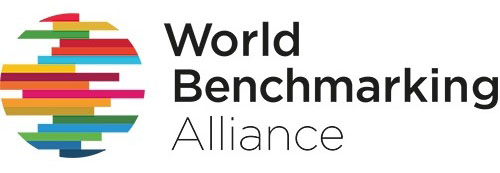From targets to actions to disclosure. Is your transition plan aligned?
Over the past 15 years, carbon accounting has become a must for organizations mindful of the climate impact of their activities. Indeed, many of them voluntarily disclose their GHG emissions and management practices. However, accounting and GHG emissions disclosure practices can differ from one company to another, and global emissions are still growing despite companies’ commitments.
In parallel, new concepts, needs and tools have emerged that should help reverse this trend: Science-Based Targets, Carbon Management System, carbon pricing, new metrics for investors and so on.
The strength of the ACT initiative is that it adopts a holistic approach to assessing how ready a company is to transition to a low-carbon economy: the level of ambition of the climate strategy is analysed against the low-carbon benchmark relevant for the company, as well as the actions that the company effectively takes in response to this strategy.
A company’s ACT assessment report supports dialogue with shareholders, provides relevant inputs for climate reporting consistent with TCFD recommendation and NFRD directive and brings credibility to company’s climate communication.
Training sessions
Fully facilitated training sessions (currently remote). Facilitators have been involved in the ACT assessment methodologies development.- For a detailed program and to register for the next sessions to become an ACT Assessor, contact us
- For a detailed program and to register for the next companies’ training session, contact us
Tools licenses
Although you will get a chance to use the tools during the training sessions, once you start an ACT Assessment project you will need to take the corresponding tool licenses.- Tool licenses are free for companies implementing the methodology internally (not commercializing services or products related to ACT Assessment)
- Tools licenses costs start from 1500€/year for consultancies. Contacts us for more details and to get your license.
Methodologies
You can already deep dive into ACT Assessment methodologies and find out how sector specific indicators will be calculated for your company. If you want to understand how these methodologies have been developed the ACT Framework and Guidelines can be of interest.Communicate your ACT Assessment results
- If you want to make public your ACT Assessment results you’ll need a third-party audit.
Understand the approach
This e-learning is made of 14 videos and was developed during the pilot phase of the ACT initiative (2018). It includes key aspects to understand the ACT approach as well as an overview of the first three developed methodologies for the Automotive Manufacturing, Electric Utilities and Retail sectors.
ACT Assessment
KEY CONCEPTS
THE METHODOLOGIES
ASSESSMENTS & REPORTS
ACT Assessment methodologies and summaries
The reporting boundaries of the ACT methodologies for a given sector shall be determined by the sector’s most significant emissions sources, according to the principle of Relevance. These significant emissions sources can be located all along the value chain of the organization. This means that both direct and indirect (value chain) emissions shall be included when relevant.
Below are summaries and methodologies of the ACT Assessment sector. Upcoming methodologies can be downloaded at Resources / ACT Methodologies.
ACT Auto
This document presents the ACT assessment methodology and summary for the Automobile Manufacturing sector.
ACT Electric Utility
This document presents the ACT assessment methodology and summary for the Electric Utility sector.
ACT Retail
This document presents the ACT assessment methodology and summary for the Retail sector.
ACT Cement
This document presents the ACT assessment methodology and summary for the Cement sector.
ACT Transport
This document presents the ACT assessment methodology and summary for the Transport sector.
ACT Oil & Gas
This document presents the ACT assessment methodology and summary for Oil & Gas sector.
ACT Iron & Steel
This document presents the ACT assessment methodology and summary for the Iron & Steel sector.
ACT Aluminium
This document presents the ACT assessment methodology and summary for the Aluminium sector.
ACT Pulp & Paper
This document presents the ACT assessment methodology and summary for Pulp and Paper sector.
ACT Real Estate
This document presents the ACT assessment methodology and summary for Real Estate sector.
ACT Building
This document presents the ACT assessment methodology and summary for Building sector.
ACT Property Developer
This document presents the ACT assessment methodology and summary for Property Developer sector.
ACT Agri & Agro
Methodology summary coming soon.
ACT Glass
This document presents the ACT assessment methodology and summary for Glass sector.
ACT Chemicals
This document presents the ACT assessment methodology and summary for Chemical sector.
ACT Generic
This document presents the ACT assessment methodology to assess companies operating in a large and various range of activities all along the value chain.
Need clarification about ACT Assessment sectoral methodologies?
ACT currently covers high-impact climate sectors. If you are not sure about which methodology applies to your business or if you want to know more about ACT sectoral methodology development (ICT, Financial Institutions, Public infrastructures, etc..) contact us using the form below.
Find an ACT Assessor
| category | published | status | logo | name | iso | country | region | contact |
|---|---|---|---|---|---|---|---|---|
| engineering | Yes | ACT Advisor and Assessor trained |  |
17 Impacts | FR | France | Ile-de-France | Saïd ID BAIH |
| engineering | Yes | ACT Advisor & Assessor trained | ACT2080 | FR | France | Pays de Loire | Thierry DEBAUD | |
| engineering | Yes | ACT Assessor & Advisor trained |  |
Ad Fine | FR | France | Occitanie | Thomas MONIER Ludivine MOULS |
| engineering | Yes | ACT Advisor and Assessor trained |  |
AD2 Conseils | FR | France | Bretagne | Didier CLAIREAUX |
| engineering | Yes | ACT Assessor trained |  |
AD3E | FR | France | Christelle BIENNARD | |
| engineering | Yes | ACT Advisor and Assessor trained |  |
AEQUILIBRIA | IT | Italy | Daniele PERNIGOTTI | |
| engineering | Yes | ACT Advisor and Assessor trained |  |
Agatte | FR | France | Occitanie | Eve ARQUIN |
| engineering | Yes | ACT Advisor and Assessor trained |  |
Aircoop | FR | France | Auvergne-Rhône-Alpes | Jeremy NAHMUYAZ |
| engineering | Yes | ACT Assessor Trained |  |
ALGOE ECULLY | FR | France | Auvergne-Rhône-Alpes | Mathilde TOLEDO |
| engineering | Yes | ACT Assessor Trained |  |
ALTER C3 | FR | France | Centre-Val de Loire | Clément ESPAZE |
| engineering | Yes | ACT Advisor and Assessor trained |  |
ALTERNATIVE CARBONE | FR | France | Grand Est | Guillaume GIRARD Stephane PETITOT |
| engineering | Yes | ACT Assessor trained |  |
APYGEC | FR | France | Occitanie | Gérard DESCAMPS |
| engineering | Yes | ACT Assessor trained |  |
ARP ASTRANCE | FR | France | Camille GOLHEN Emilie MAZZA Arnaud NOUAILHAS Marine QUERNE |
|
| engineering | Yes | ACT Advisor and Assessor trained |  |
ASPARK CONSULTING | FR | France | Ile-de-France | Aurelie GAUTHIER |
| engineering | Yes | ACT Assessor trained |  |
ASSOCIATION BIOVALLéE | FR | France | ||
| engineering | Yes | ACT Advisor and Assessor trained |  |
ASSOCIATION CONVENTION DES ENTREPRISES POUR LE CLIMAT |
FR | France | Auvergne-Rhône-Alpes | Anna LE FAOUDER |
| engineering | Yes | ACT Assessor trained |  |
Auddice Environnement | FR | France | Hauts-de-France | Charlotte CHATTON |
| engineering | Yes | ACT Assessor trained |  |
Auxilia | FR | France | Ile-de-France | Quentin HERBET |
| engineering | New | ACT Assessor trained |  |
Axionable | FR | France | Antoine MAROTTE | |
| engineering | Yes | ACT Advisor and Assessor trained |  |
B&L évolution | FR | France | Ile-de-France | François CHEL Benoit GALETTO Camille JAMMES Solène TONEGUZZO |
| engineering | Yes | ACT Assessor trained | Bartle | FR | France | Île-de-France | Louis RAYNAUD DE LAGE | |
| engineering | Yes | ACT Assessor trained | 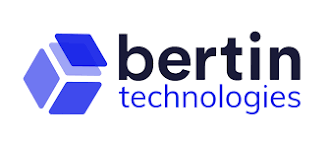 |
BERTIN TECHNOLOGIES | FR | France | ||
| engineering | Yes | ACT Assessor trained | Bureau Veritas | FR | France | Ile-de-France | Valentin REGNIER | |
| engineering | Yes | ACT Assessor trained |  |
BURGEAP (groupe GINGER) | FR | France | Salomé BAKALOGLOU | |
| engineering | Yes | ACT Advisor and Assessor trained |  |
CABINET ESPERE | FR | France | Centre-Val de Loire | Jean-François FILLAUT Margot LEIBNITZ Delphine TARTARIN Lilith THUAL |
| engineering | Yes | ACT Assessor trained |  |
Cabinet Lamy Environnement | FR | France | Auvergne-Rhône-Alpes | Gérald BOURDAT |
| engineering | Yes | ACT Advisor and Assessor trained | CCAOF | FR | France | Vincent ALIGAND | ||
| engineering | Yes | ACT Advisor and Assessor trained |  |
CCG (Groupe Conseil Carbone) | CA | Canada | Toutes régions | Henri GILMANT |
| engineering | Yes | ACT Assessor Trained |  |
Charlène Legrand | FR | France | ||
| engineering | Yes | ACT Advisor and Assessor trained | 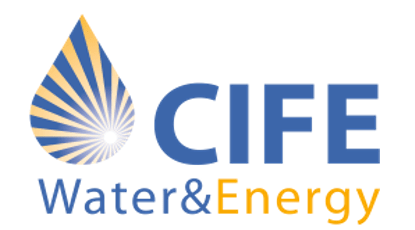 |
CIFE Water&Energy | TN | Tunisie | Ben Arous | Imed GHARBI |
| engineering | Yes | ACT Assessor trained |  |
CLIMAT MUNDI | FR | France | Vincent CAU | |
| engineering | Yes | ACT Assessor trained |  |
CLIMAXX | FR | France | Benoît TILLY | |
| engineering | Yes | ACT Assessor trained |  |
CO2Logic | FR | France | Alexis BARRY Pieter FLAMAND |
|
| engineering | Yes | ACT Advisor and Assessor trained |  |
Codo advisory | JP | Japan | Kyushu | Emilie JONES Kaori SUZUKI |
| engineering | Yes | ACT Advisor and Assessor trained |  |
Cooperative Carbone | FR | France | Nouvelle Aquitaine | Vincent DESMAISON Anne ROSTAING |
| engineering | Yes | ACT Assessor trained |  |
DATAVALUE STRATEGY | FR | France | Ile-de-France | Isabel HALABY |
| engineering | Yes | ACT Assessor trained |  |
DAVID FOSTER | FR | France | David FOSTER | |
| engineering | Yes | ACT Advisor and Assessor trained |  |
Décarbonaction | FR | France | Laurent ROCHE-SAUCIER | |
| engineering | Yes | ACT Advisor and Assessor trained |  |
DECEO GROUPE | FR | France | Ile-de-France | Narith PHLEK |
| engineering | Yes | ACT Assessor trained |  |
Deloitte | FR | France | Ile-de-France | Gabriella CEVALLOS Paul MADOZ Joel NEAVE |
| engineering | Yes | ACT Assessor trained |  |
E3 Consultora Ambiental | MX | Mexico | David PARRA ROMERO | |
| engineering | Yes | ACT Assessor trained |  |
ECO-ACT | FR | France | Pierre-Philippe CREPIN Alice DEDA Colin GUILLAUME Aubin ROY Louis THIERCELIN |
|
| engineering | Yes | ACT Advisor and Assessor trained |  |
ECO2 Initiative | FR | France | Ile-de-France | La Réunion | Manon CLAVELIER Simon DELY Quentin JOUFFRE Rémi MARCUS Alexandre MARTIN Jennifer MEYER André PEDROSA RODRIGUES Carla SALIQUE |
| engineering | Yes | ACT Advisor and Assessor trained |  |
ECONNAI'SENS | FR | France | Bretagne | Thomas RIBASSIN |
| engineering | Yes | ACT Assessor trained |  |
ECOPTIMUM Conseil | FR | France | Antonin VASEUX | |
| engineering | Yes | ACT Advisor and Assessor trained |  |
EFFECTUS SASU | FR | France | Ile-de-France | Sami MEBAZAA |
| engineering | Yes | ACT Assessor trained |  |
Effet 2 levier | FR | France | Vincent COSSAC | |
| engineering | Yes | ACT Advisor & Assessor trained |  |
EFYB | FR | France | Thomas BATORI Lucas CHASSAGNE |
|
| engineering | Yes | ACT Advisor and Assessor trained |  |
Egis group | FR | France | Ile-de-France | France BAKKAR |
| engineering | Yes | ACT Advisor and Assessor trained |  |
EKODEV | FR | France | Ile-de-France | Matthieu CANOVA Begenau DAVID Sebastien FERRAGE Elodie GILHODES Ronan LA SIERRA Johanna LARAND Ronan LEONARD Emmeline TOUMANI |
| engineering | Yes | ACT Assessor trained |  |
ELLIPSE | FR | France | Michel HIRAUX | |
| engineering | Yes | ACT Advisor and Assessor trained | 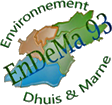 |
ENDEMA | FR | France | Pays de la Loire | Charles DEVAUX |
| engineering | Yes | ACT Assessor trained |  |
Engebio | BR | Brazil | Mario SAFFER | |
| engineering | Yes | ACT Assessor trained |  |
ETHOS SERVICES SA | FR | France | Toutes régions | Vanessa ARDENTI Raphaël CAREGNATO Fanny EBENER Mathilde FONTANNAZ Theo MILLIEZ Laure MUFFAT Romain PERRUCHOUD Emmanuelle RICCHI |
| engineering | Yes | ACT Assessor trained |  |
Eurogroup consulting | FR | France | Sébastien KAHN | |
| engineering | Yes | ACT Advisor and Assessor trained | 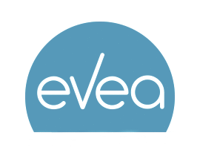 |
EVEA CONSEIL | FR | France | Pays de la Loire | François DANIC Laurine LANUIT Pierre LE HOANGAN Aurélie PERRIN |
| engineering | Yes | ACT Assessor trained |  |
Evolution Markets CES | FR | France | ||
| engineering | Yes | ACT Advisor and Assessor trained |  |
EVOLUTION MARKETS CORPORATE SOLUTIONS FRANCE | FR | France | Ile-de-France | Clément Des Garets Barbara SERVAIN |
| engineering | Yes | ACT Assessor trained |  |
Expleo France | FR | France | Ile-de-France | Remy BOURGES |
| engineering | Yes | ACT Assessor trained |  |
Futur-Simple | CA | Québec | Toutes régions | |
| engineering | Yes | ACT Advisor and Assessor trained |  |
Goodwill Management | FR | France | Ile-de-France | Chloé DESCHAMPS Baptiste EISELE Astrid FORGET Mikaël LEROY Lea MANSOUR |
| engineering | Yes | ACT Assessor trained |  |
Green Lantern | FR | France | Ile-de-France | Laurent AYOUN |
| engineering | Yes | ACT Assessor trained |  |
Green Soluce | FR | France | Ile-de-France | Elsa RIZKALLAH |
| engineering | Yes | ACT Advisor and Assessor trained |  |
Greenflex | FR | France | Ile-de-France | Thibault BEN KHELIL Anne-Charlotte GRIPOIX Antoine HEUGUE Charlotte JAMMES |
| engineering | Yes | ACT Advisor and Assessor trained |  |
I CARE & CONSULT | FR | France | Ile-de-France | Laurène BRANAA Victor DEMEY Lorenzo DESGRANGES Léo GENIN Coralie GOSSELIN Sami Kallal Yoann LECHAT Albane MAZOYER Lucie MOUTHY Tom NICO Olivier POLIDORI Eliott RABIN Marie REBIÈRE Alexis TRESSOL Zoé TRONEL |
| engineering | Yes | ACT Assessor trained |  |
I care & Consult Brasil | BR | Brazil | Victor Gonçalves | |
| engineering | Yes | ACT Advisor and Assessor trained |  |
IBM France SAS | FR | France | Ile-de-France | Julien BRITON |
| engineering | Yes | ACT Assessor trained | 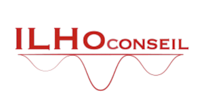 |
ILHO CONSEIL | FR | France | Véronique LINE | |
| engineering | Yes | ACT Assessor trained |  |
Initiatives Durables | FR | France | Grand Est | Leonard RONAN |
| engineering | Yes | ACT Assessor trained |  |
Invest4Good | FR | France | Julian DUPLAN | |
| engineering | Yes | ACT Assessor trained |  |
ISODOM | FR | France | Réunion | Nancy EVANO-BADILAS |
| engineering | Yes | ACT Assessor trained |  |
JPC PARTNER | FR | France | Catherine BILLET | |
| engineering | Yes | ACT Advisor and Assessor trained |  |
KOSSOP | FR | France | Ile-de-France | Titouan FRETIGNE Therance NGUEUKAM Thomas VIOTTI |
| engineering | Yes | ACT Advisor and Assessor trained |  |
L'Effet de Faire | FR | France | Occitanie | Gabriel KILCHÖR Anne SIMON BARQUERO |
| engineering | Yes | ACT Advisor and Assessor trained |  |
LAPSAE | FR | France | Ile-de-France | Nathalie DANEL |
| engineering | Yes | ACT Assessor trained |  |
LONGEVITY | FR | France | Eugenie COMTY | |
| engineering | New | ACT Advisor and Assessor trained | LPE Transition | FR | France | Maxime ORTAIS | ||
| engineering | Yes | ACT Assessor trained |  |
MAITRISEZ VOTRE ENERGIE | FR | France | Ile-de-France | |
| engineering | Yes | ACT Advisor and Assessor trained |  |
Materiality Reporting | FR | France | Ile-de-France | Thomas BENEZECH Dolorès LAROQUE |
| engineering | Yes | ACT Assessor trained |  |
MCP ASSET MANAGEMENT JAPAN | FR | France | Toutes régions | Stefan LE DU |
| engineering | Yes | ACT Assessor trained |  |
MISCOPEIN Conseil | FR | France | Hélène MISCOPEIN | |
| engineering | Yes | ACT Advisor and Assessor trained |  |
Mobeetip | FR | France | Occitanie | Benoit BUFFRY Jérôme DELORME |
| engineering | Yes | ACT Advisor and Assessor trained |  |
Monde Nouveau | FR | France | Occitanie | Bérenger COLLOTTE |
| engineering | Yes | ACT Assessor trained |  |
MOUVANCES CARAIBES | FR | France | Guadeloupe | Marin CORALINE |
| engineering | Yes | ACT Advisor and assessor trained |  |
Naldeo Technologies | FR | France | Anne BOGGIONE Damien SPUDIC Virginie SURTEES |
|
| engineering | Yes | ACT Advisor and Assessor trained |  |
Nepsen (ex E6 CONSULTING) | FR | France | Nouvelle Aquitaine | Yacine ANBRI |
| engineering | Yes | ACT Assessor trained |  |
Ngage consulting | FR | France | Toutes régions | Gaetan VAN LIERDE |
| engineering | Yes | ACT Advisor & Assessor trained | Nicolas Fouquet | FR | FRANCE | Nicolas FOUQUET | ||
| engineering | Yes | ACT Advisor and Assessor trained |  |
NO2W | FR | France | Bretagne | Nina DONARD |
| engineering | Yes | ACT Advisor and Assessor trained |  |
O2M Conseil | FR | France | Bretagne | Yannick BROCHARD Pierre MINIER Thibault PLOMBIN |
| engineering | Yes | ACT Advisor and Assessor trained |  |
OID Consultants | FR | France | Auvergne-Rhône-Alpes | Sarah GRISOT |
| engineering | Yes | ACT Assessor trained |  |
Oksigen | FR | France | Tristan BIENTZ Pauline MANHES |
|
| engineering | Yes | ACT Advisor and Assessor trained |  |
Open Lande | FR | France | Pays de la Loire | Elise BONNEAU Marie JEDAR Adrien SUIRE |
| engineering | Yes | ACT Advisor and Assessor trained |  |
Optimalloys | FR | France | Hauts-de-France | Betremieux GREGORY |
| engineering | Yes | ACT Advisor and Assessor trained |  |
Ouiact | FR | France | Ile-de-France | Charles LEVEQUE Yoann VALLERIE Loic VOISOT |
| engineering | Yes | ACT Assessor trained |  |
Oxia Initiative Inc. | CA | Québec | Toutes régions | Thomas GOETZ |
| engineering | Yes | ACT Advisor and Assessor trained |  |
Paradigmshift | FR | France | Bretagne | Erwan LE BRETON |
| engineering | Yes | ACT Advisor and Assessor trained |  |
PLANA.EARTH SAS | FR | France | Ile-de-France | Amandine BELLAND |
| engineering | Yes | ACT Assessor trained |  |
Plantar Carbon | BR | Brazil | Adriano SCARPA | |
| engineering | Yes | ACT Advisor and Assessor trained |  |
PRAXILIENCE | FR | France | Ile-de-France | Philippe BOUTEYRE |
| engineering | Yes | ACT Assessor trained |  |
Pre-Sustainability | FR | France | Eric MIERAS | |
| engineering | Yes | ACT Assessor trained |  |
PWC ADVISORY | FR | France | Carl JOUANEAU Carl JOUANEAU Jean-Baptiste PETIT |
|
| engineering | Yes | ACT Advisor and Assessor trained |  |
Québec Net Positif | CA | Canada | Toutes régions | Anne-Josée LAQUERRE |
| engineering | Yes | ACT Advisor and Assessor trained |  |
R3 Impact | FR | France | Ile-de-France | Gautier VANDENBOGAERDE |
| engineering | Yes | ACT Assessor trained |  |
RIPOSTE VERTE | FR | France | Ile-de-France | Valéry HERGOTT |
| engineering | Yes | ACT Advisor and Assessor trained | RSM France | FR | France | Pierre-Thomas FOULON Céline PICOT Vincent VALETTE |
||
| engineering | Yes | ACT Assessor trained |  |
S4BH | FR | France | Eric SOROKA | |
| engineering | Yes | ACT Assessor trained | 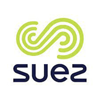 |
Safege | FR | France | Ghislain FAVE | |
| engineering | Yes | ACT Advisor and Assessor trained |  |
Sami | FR | France | Ile-de-France | Guillaume COLIN |
| engineering | Yes | ACT Advisor and Assessor trained |  |
SAS WELYA | FR | France | ||
| engineering | Yes | ACT Assessor trained |  |
Scalian OP | FR | France | Occitanie | Xavier LOIZILLON |
| engineering | Yes | ACT Assessor trained |  |
Setec | FR | France | Marie HOMMEAU | |
| engineering | Yes | ACT Assessor trained |  |
SEXTANT EXPERTISE | FR | France | Ile-de-France | Nasser LARGO |
| engineering | Yes | ACT Advisor and Assessor trained |  |
SMILE FOR FUTURE | FR | France | Ile-de-France | Sophie DAVIDAS Aude VURCKE |
| engineering | Yes | ACT Assessor trained |  |
SOLINNEN | FR | France | Guillaume AUDARD Cécile BEAUDARD |
|
| engineering | Yes | ACT Assessor trained |  |
Southpole Mexico | MX | Mexico | Jimena GONZÁLEZ-ARCHUNDIA |
|
| engineering | Yes | ACT Assessor trained |  |
Step One to Transition | FR | France | Ile-de-France | Gabriel FEUILLET-PALMA |
| engineering | Yes | ACT Advisor and Assessor trained |  |
Sustainable Metrics | FR | France | Ile-de-France | Jean-Baptiste COTTENCEAU Matthieu SCHLESSER Hugues TERRIER Lise WILMER |
| engineering | Yes | ACT Assessor trained |  |
Sustainable Solutions Provider | FR | France | Occitanie | Lucas LASSEGNORE |
| engineering | Yes | ACT Advisor and Assessor trained |  |
Temergie | FR | France, Réunion | Réunion | Benjamin FORTUIT |
| engineering | Yes | ACT Advisor and Assessor trained |  |
The European TK'Blue Agency | FR | France | ||
| engineering | Yes | ACT Advisor and Assessor trained | 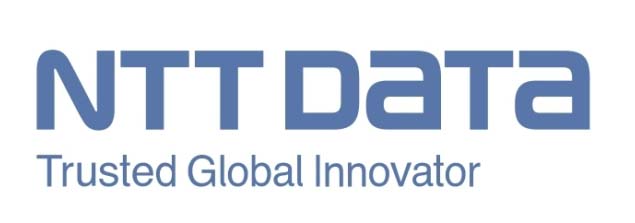 |
THE GREEN CFO | FR | France | Toutes régions | Hervé HOSSELET |
| engineering | Yes | ACT Assessor trained | 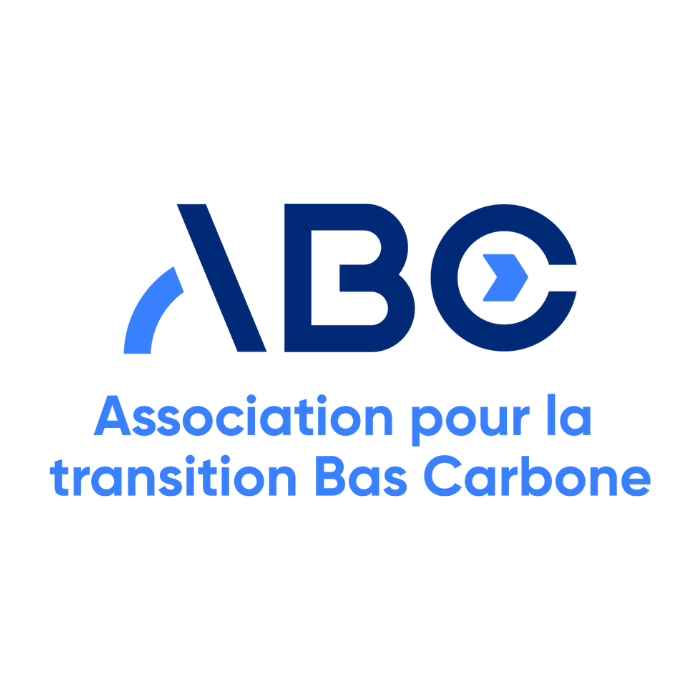 |
TOLMA | FR | France | Hauts-de-France | Jessica DOURCY |
| engineering | Yes | ACT Advisor and Assessor trained |  |
Toovalu | FR | France | Pays de la Loire | Marie-Astrid CAVARO Nicolas DESMOITIERS Marie GABORIT Thomas GILORMINI Maxime RANCHIN Elodie UZUREAU |
| engineering | Yes | ACT Advisor and Assessor trained |  |
TranSyLience | FR | France | Auvergne-Rhône-Alpes | Jérémy ALVAREZ-HERAULT Carole RAPILLY Nicolas SUCHIER |
| engineering | Yes | ACT Advisor and Assessor trained |  |
UTOPIES | FR | France | Ile-de-France | Corto BEDETTI Arthur BINNINGER Heliabel BOMSTEIN Elise BONNEAU Naomi DELILLE David DOS SANTOS Sarah GOLD Antoine JOINT Victoire LABBE Louis MONNIER Eleonore NAZARENKO Anne-Sophie THIERY Arthur VETU Manon WASYLEC |
| engineering | Yes | ACT Assessor trained |  |
Valora Mexico | MX | Mexico | Mejía FERNANDO LÓPEZ | |
| engineering | Yes | ACT Advisor and Assessor trained |  |
VERTUEL | FR | France | Pays de la Loire | Jean-Luc DOTHEE Cecile VACHER |
| engineering | Yes | ACT Advisor and Assessor trained |  |
WeCount | FR | France | Antonin GUY | |
| engineering | Yes | ACT Assessor trained |  |
WILD TREES | FR | France | Théophile HUTHWOHL Paco VADILLO |
|
| engineering | Yes | ACT Assessor trained |  |
World Council for Renewable Energy | NG | Nigeria | Stanley IJEOMA | |
| engineering | Yes | ACT Advisor and Assessor trained |  |
WSP USA, INC. | FR | France | Jeffrey IRVINE | |
| engineering | Yes | ACT Assessor trained | Zencap AM | FR | France | Raphaël DELEARDE Thomas PIGET |
||
| category | published | status | name | iso | country | region | contact |



